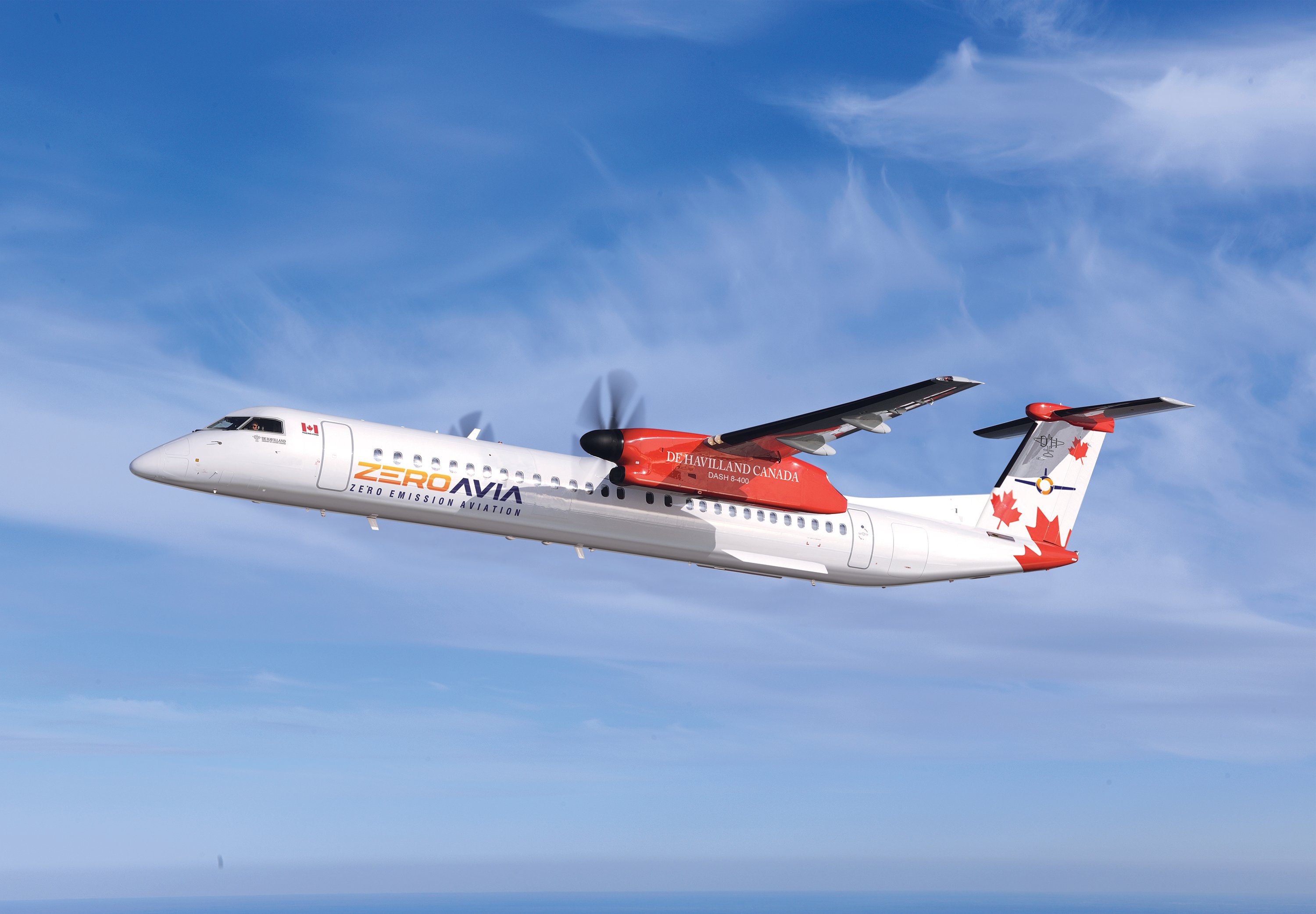Click Here to View This Page on Production Frontend
Click Here to Export Node Content
Click Here to View Printer-Friendly Version (Raw Backend)
Note: front-end display has links to styled print versions.
Content Node ID: 419343
De Havilland Aircraft of Canada this week announced plans to power both new-build and in-service Dash 8-400 twin turboprop regional airliners with hydrogen-electric propulsion through a partnership with ZeroAvia. Under a memorandum of understanding (MoU) signed on December 14, the airframer agreed on options to buy 50 sets of ZeroAvia's in-development 2-megawatt ZA2000 powertrain, subject to finalization of partnership terms.
Following Airbus's September 2020 announcement that it is developing designs for hydrogen-powered single-aisle airliners through its ZeroE program, DeHavilland Canada is set to become the second airframer with an active program for new- build aircraft, as opposed to just retrofits for existing models. The announcement came a day after United Airlines said it would participate in a $35 million round of funding for ZeroAvia and reserve purchase rights for 100 of its powertrains to retrofit on regional jets such as the Bombardier CRJ550.
The companies plan to collaborate on a service bulletin for the Dash 8-400 type certificate that would allow for both a line-fit option and a retrofit of ZeroAvia’s 2-megawatt ZA2000 powertrain. More than 625 of the Dash 8-400, which seats up to 90 passengers, have so far been delivered to airlines worldwide. Under a previous agreement with the Alaska Air group in October, ZeroAvia said it aims to deliver a range of over 500 nm (575 miles) carrying 76 passengers.
As part of the program, ZeroAvia would develop a flight demonstrator with De Havilland Canada's support using a Dash 8-400 to aid certification and showcase the operational and commercial potential of the engine. The companies plan to identify a suitable existing route for the flight demonstrations and aim for entry into service within the next five years. ZeroAvia and De Havilland Canada would jointly market aircraft powered by the hydrogen-electric propulsion systems to operators with power-by-the-hour (PBH) support.
Meanwhile, ZeroAvia expects to fly a 19-seat aircraft using its ZA600 powertrain in the coming weeks in a hybrid configuration (one conventional engine, one hydrogen-electric) before flying the same aircraft using only hydrogen-electric engines next year. For its ZA2000 program, ZeroAvia aims to perform full thrust ground demonstrations of its 1.8-megawatt engine variant by the end of 2022. From there, the company plans to win certification of its ZA2000 powertrain to support 40- to 80-seat aircraft with a potential range in excess of 700 nautical miles by 2026.
In August, Brazilian manufacturer Embraer said it will have a hydrogen-powered technology demonstrator aircraft flying by 2025. During a briefing on the company’s commitment to supporting environmentally sustainable aviation, executives did not specify whether the aircraft will be a new design or a converted version of one of its existing airliners or business aircraft.
European regional aircraft manufacturer ATR has not yet made any commitment to offering hydrogen- or hybrid-electric-powered versions of its ATR 42 and 72 twin turboprop commuters. However, ZeroAvia's rival propulsion system developer Universal Hydrogen has announced plans to retrofit these types.
